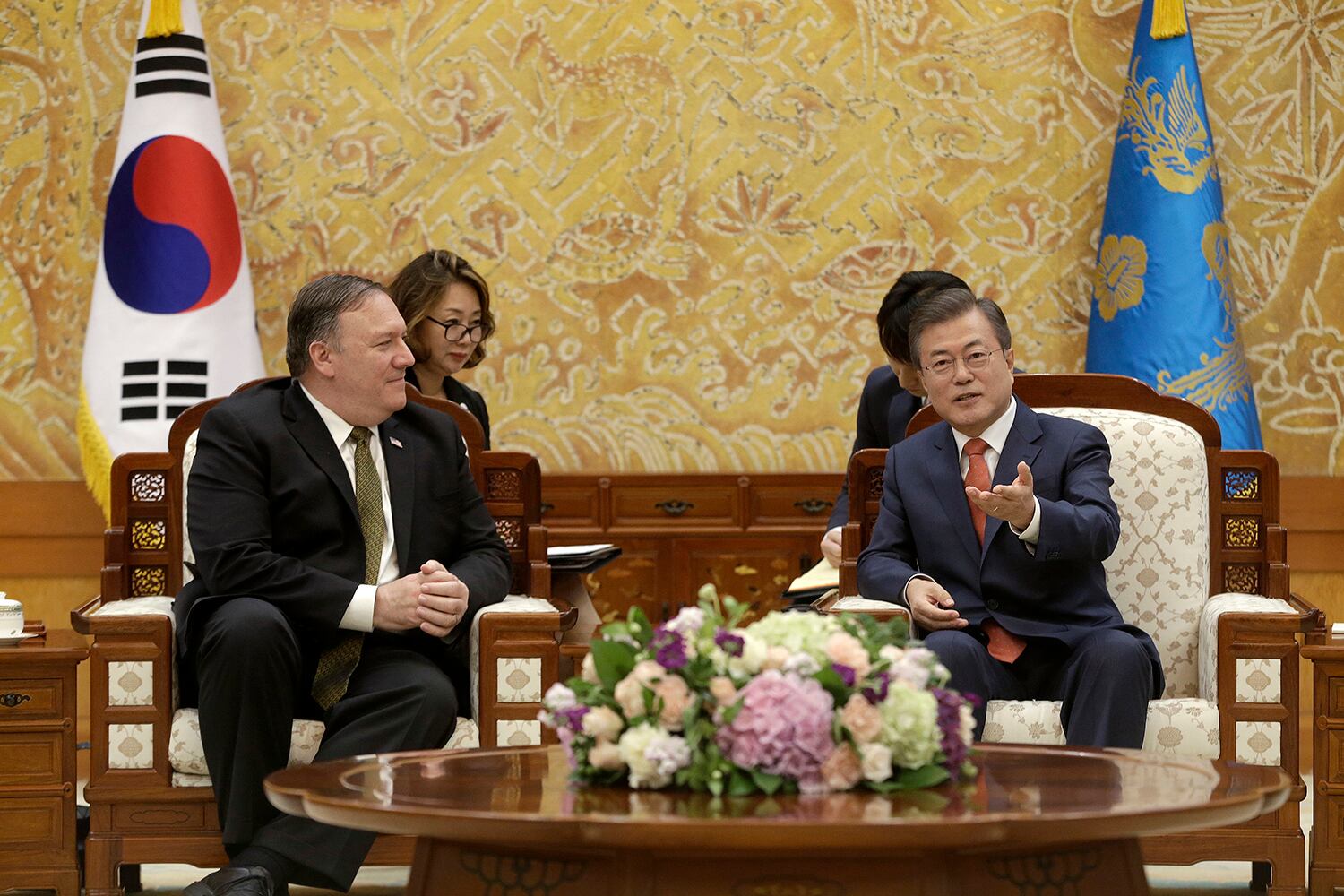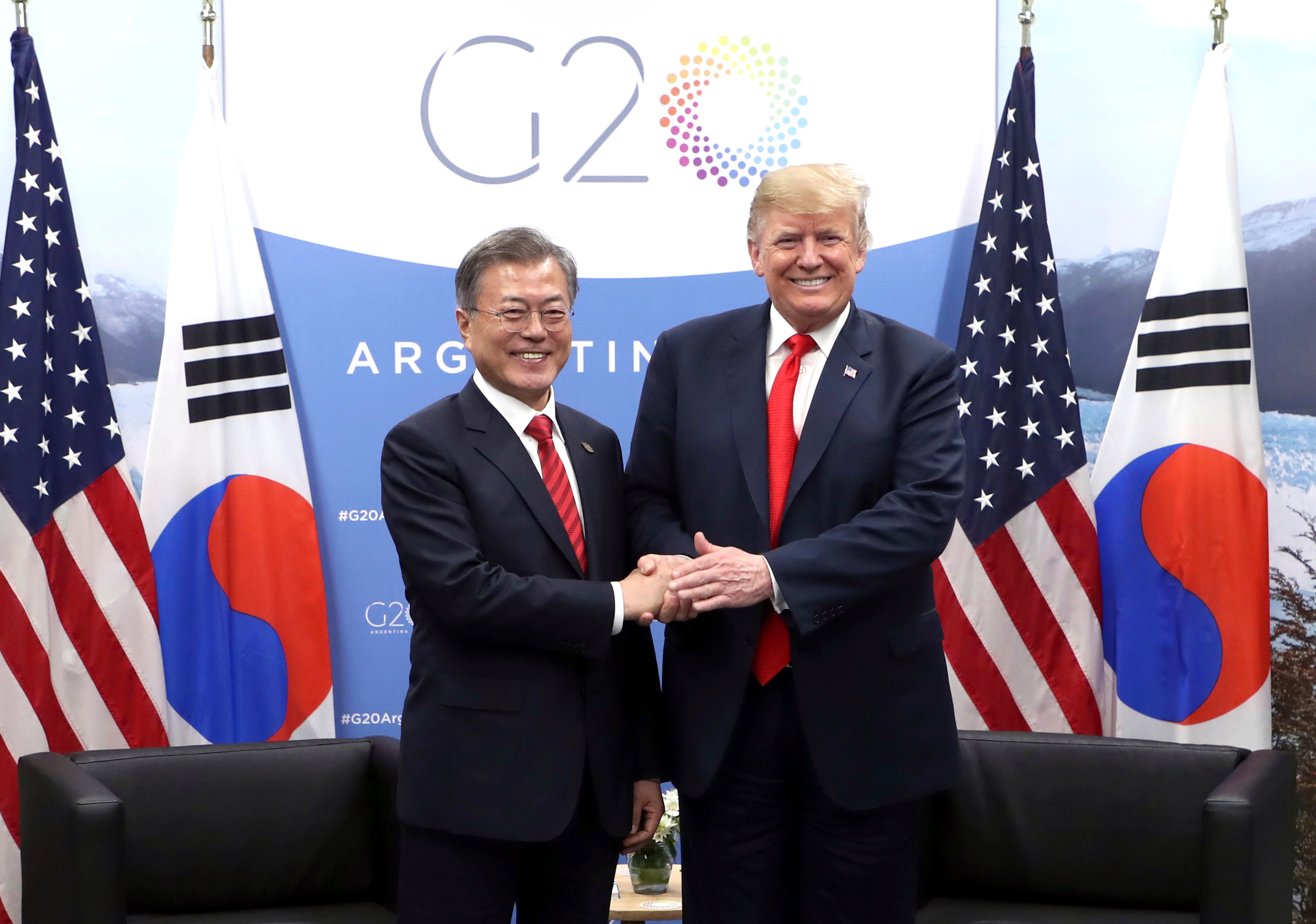WASHINGTON — Senior administration officials say U.S. troop withdrawals from the Korean Peninsula won’t be on the planned agenda for next week’s peace talks.
Whether President Donald Trump decides to add them in remains to be seen.
Trump is scheduled to meet with North Korean leader Kim Jong Un next week for a second face-to-face summit aimed at bringing the rogue regime in line with international standards, including ending their nuclear weapons program.
RELATED

The meeting, scheduled in Vietnam on Feb. 27-28, builds off the meeting between the two men last June and will follow the same format, according to White House officials. That means limited public visibility into the specifics of the talks, beyond what the leaders say after the fact.
But in remarks at Stanford University late last month, U.S. Special Envoy for North Korea Stephen Biegun said that the topic of withdrawing American forces from South Korea in exchange for denuclearization would not be on the table at the event.
“So we are not involved in any diplomatic discussion, full stop, that would suggest this tradeoff,” he said. “It has never been discussed … Sustaining the future of that (U.S.-South Korea) alliance is something that both sides have to fully commit themselves to.”
Senior administration officials reiterated that message in the lead up to this peace summit, saying that the U.S. military presence in South Korea and the wider Pacific region will not be a bargaining chip in the talks.
But Trump in the past has broached the topic himself. Last year, he ordered a pause to some joint military exercises between the two countries to allow North Korea more political space to enact reforms.
He has also argued that the U.S. troop presence there is costly and potentially a drain on other military priorities. But he said in a CBS interview earlier this month that he had “no plans” to move the forces.
RELATED

Earlier this month, South Korean leaders reached a new cost-sharing agreement with U.S. officials for the 28,500 American troops stationed there. South Korean authorities will provide about $1 billion a year to cover expenses related to that military footprint.
On Wednesday, Trump said he was optimistic that the next round of talks between the country could produce significant benefits for the region.
“I wouldn’t be surprised to see something work out,” he said. “As an economic power, because of its location … if you look on a map and you see Russia, China, and right in the middle of everything is South Korea, and North Korea right smack in the middle. Tremendous potential for economic well-being, long term.”
On Thursday, the chairman of the House’s Intelligence, Armed Services and Foreign Affairs committees sent a letter to the White House criticizing officials for not including lawmakers in more of the planning of the event and for failing to properly brief Congress on the North Korea situation since the last summit.
“There is no legitimate reason for having failed to provide regular, senior-level briefings to the relevant committees of jurisdiction on a matter of such significance to our national security,” the three men wrote. “A summit that amounts to little more than spectacle will further erode the public confidence and the credibility of the United States, an outcome that we all wish to avoid.”
Leo covers Congress, Veterans Affairs and the White House for Military Times. He has covered Washington, D.C. since 2004, focusing on military personnel and veterans policies. His work has earned numerous honors, including a 2009 Polk award, a 2010 National Headliner Award, the IAVA Leadership in Journalism award and the VFW News Media award.









